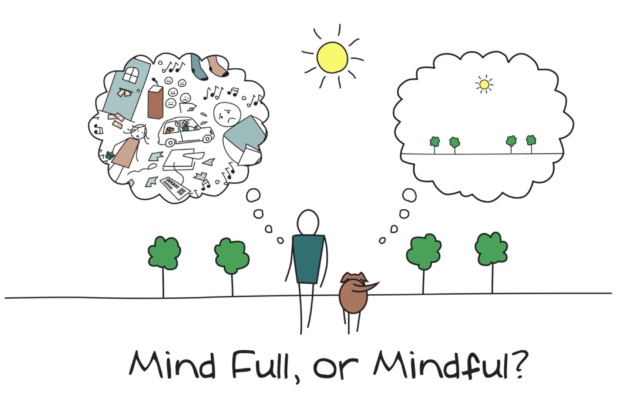What is Mindfulness?
The definition of mindfulness states that it is the act of bringing your attention to the present moment, while being aware of all your feelings, thoughts, and emotions. It also states how it is used for therapeutic purposes, which is true, there are applications of mindfulness with methods of treatment. One thing the definition misses, however is how impactful and beneficial this practice actually is.
Applications in every day life
Many departments of healthcare have applied this to their services and perhaps have seen a drastic increase in efficiency. There are mindfulness-based relapse prevention therapies (MBRP), along with mindfulness-based cognitive therapies (MBCT), also meditation and yoga implementations. Now, what is mindfulness exactly? The concrete definition could be seen as a bit broad and confusing for those who have never heard of it before. Attention to the present? I already feel my emotions in the present. What makes the act of being present so beneficial? These are the normal reactions and are actually quite common for most people who open their mind to this practice. The truth is that mindfulness does involve a very aware sense of the present, but no insight will be made unless you see the all the present moment has to offer in a non-judgmental way. Well, how exactly can no judgment lead to an exponential inheritance of benefits in life?
Emotional Interpretation
When you feel intense emotions of anger, sadness, or even some anxiety, you can literally feel the minds judgment. The judgement stems from preferring your present moment in reality to be different than it is. The resistance to reality showing up as is, creates intense emotion. Trying to live without judgement can set a lot of people free from their lives of intense thinking and anxiety. It requires an honest interpretation of the self, and the thinking that’s operating and making it appear. By practicing mindfulness, you will have a much better understanding of your mind and body working together to create the experience of reality. In it’s flaws, we can have the space to accept who we are. By approaching life from a more holistic understanding like mindfulness, you end up having more forgiveness, kindness, and patience for others who may have used to irritate you easily before.
Practicing Meditation
Practices like meditation help aid your journey to a better understanding. The reason meditation can work so well is because the mind is used to working literally all the time. Even when you sleep, you brain is producing waves of energy similar to that of when you are awake. Slowing down your actions and intentions for only 10-20 minutes at a time can put you in a position to be aware of your mind’s movement and power in your experience. In the same way you fell the emotion of anger if someone insults you, you can feel the emotions arise when thoughts during the current moment deter from the present. They may not be as intense as they are when you feel them in an argument, but if you’re aware of your body enough to notice the smaller sensations, real change can start to develop. Your interpretation of the past is littered in bias and unreliable memories. In the same way how a witness to crime can be circumstantial evidence because the brain is not perfect and can often remember the past in ways it never really happened. Learning to let go of your past and future will set you free from them.
by Tristen O’Bannon, student at KSU






